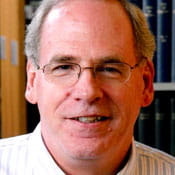Now Featured in the Patheos Book Club
Wisdom & Wonder
Common Grace in Science and Art
By Abraham Kuyper
 Nelson D. Kloosterman (Th.D., Theological University of the Reformed Churches [Liberated], Kampen, the Netherlands) is ethics consultant and executive director of Worldview Resources International, a service organization whose mission is to produce and provide resources designed to assist in understanding and applying a Christian worldview to responsible living in a global culture. He has served as minister and professor for more than thirty years, and translated dozens of works on Reformed theology and ethics.
Nelson D. Kloosterman (Th.D., Theological University of the Reformed Churches [Liberated], Kampen, the Netherlands) is ethics consultant and executive director of Worldview Resources International, a service organization whose mission is to produce and provide resources designed to assist in understanding and applying a Christian worldview to responsible living in a global culture. He has served as minister and professor for more than thirty years, and translated dozens of works on Reformed theology and ethics.
Here, Kloosterman discusses the challenging process of translating Abraham Kuyper's essays on common grace for an English audience.
While translating the book Wisdom & Wonder, what was the most powerful statement that struck you in the work?
Page 82: "Nevertheless, it was only special revelation that shed such indispensable light upon the weightiest issues, especially those involving the origin, government, and destiny of all things. Only the revelation of Holy Scripture supplies certainty regarding the cardinal issues that dominate our entire view of life, and yet it will not do to say that these issues belong to the domain of particular grace." This statement highlights the priority and necessity of special revelation for (1) comprehending general revelation aright, and (2) integrating grace and nature, the hallmark of neo-Calvinism.
In the original language, what is the tone of the book? Is that something you tried to retain in the translation?
In these essays, Kuyper displays a tone of urgency and amazement. Urgency, lest the arenas of science and art be surrendered to unbelieving thought, and amazement, because Jesus Christ genuinely supplies human beings with access to the truth and beauty that shape our enjoyment and use of creation.
What was the most challenging concept of the book to translate into English? Why?
The most challenging concept was Kuyper's opening claim that science belongs to the creation (p. 35). Our culture tends to view science as human reflection upon creation, the conclusions of a method applied for investigating, observing, and analyzing creation. Kuyper placed science, as part of creation, on the same level as marriage and family. I'm not altogether sure that this claim can be sustained, however.
What type of process do you go through to ensure accuracy in translation?
My process goes like this. I first read the chapter I'm about to translate, noting the flow of argument, identifying metaphors, ideas, or locutions that I'll be needing to investigate in the dictionaries. Then I begin translating, using multiple computer screens with a number of resources available only a keystroke away. These include online dictionaries of the period, as well as quality English-language dictionaries and thesauruses. Finally, once the translation is completed, I read it "aloud in my head" to check for euphony, smooth clause arrangement, and accent-free rendering. My objectives are twofold: accuracy and accessibility. Each is subjective, and each improves with time and translation. Kuyper's style fluctuates dramatically, as in: wildly. One chapter can be choppy, loquacious, opaque (in the sense of obscure), while the next chapter can be lucid, brief, and to the point.
Why translate Kuyper today?
Three reasons. First, educational: to overcome ignorance of a vibrant tradition of integrated Christianity that seems to be slipping into obscurity as another generation of Kuyper-knowers passes on. Second, evangelistic: so that the English-speaking world may benefit from ideas that have empowered believers for several generations in terms of public Christian cultural witness and service. Third, apologetic: so that both the advocacy and criticism of Kuyper's proposals can be evaluated in terms of the very words of Kuyper himself, rather than in terms of any selective spin to which his ideas may up to this point have been subjected.
3/16/2012 4:00:00 AM




